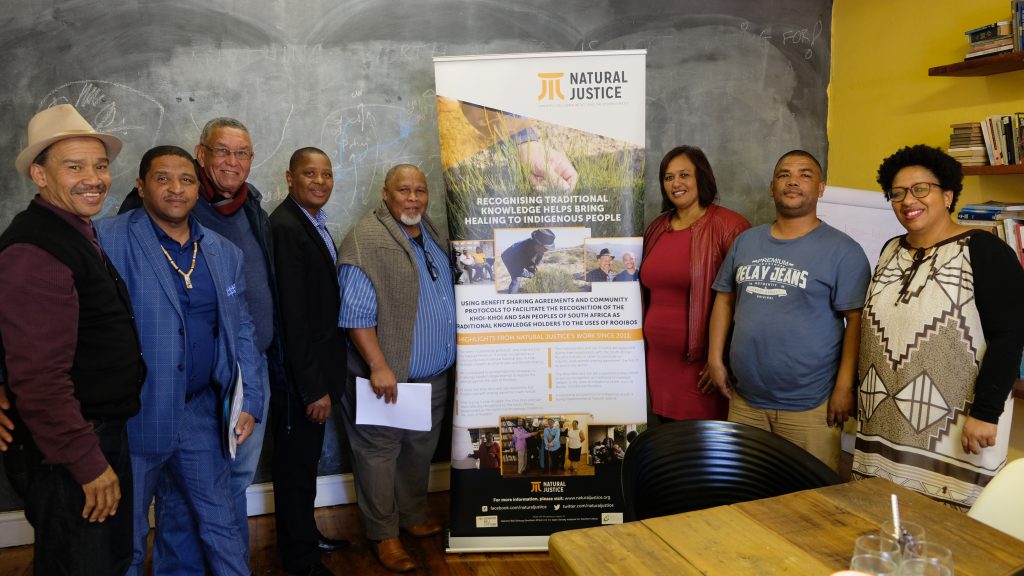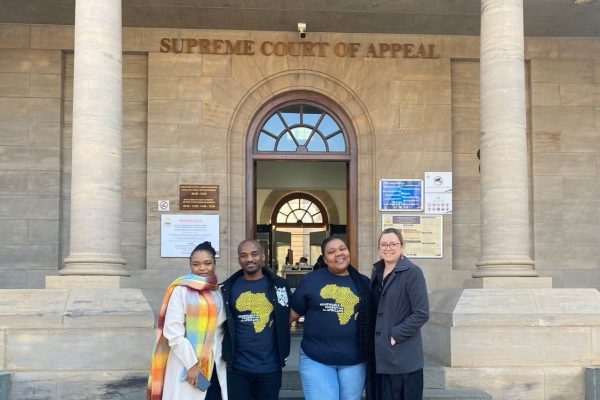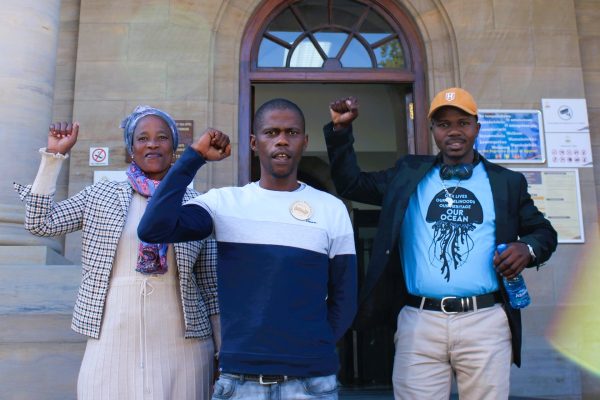The Khoikhoi and San indigenous communities will also now receive benefits for the use of this knowledge via a benefit-sharing agreement launched today. This sets a precedent for indigenous communities across the globe.
For seven years, Natural Justice has supported the National Khoi & San Council in negotiations with the South African Rooibos industry and, today, we can take pride in what we have achieved together. The negotiations have concluded one of the world’s first industry-wide benefit-sharing agreements, which not only provides a form of restitution to the Khoikhoi and San indigenous peoples of South Africa, but also acknowledges them as traditional knowledge holders to Rooibos. This knowledge has been a crucial contributor to the multi-million Rand industry we see today.
In terms of the history of the industry as we know it, there has been no doubt that the Khoikhoi and San knew of the uses of Rooibos, having used the plant for generations, and conveyed their knowledge to outsiders, making it possible for the commercialisation of Rooibos products. Their generosity can now be recognised and respected.
Their traditional knowledge was confirmed in a 2014 study commissioned by the then Department of Environmental Affairs. In 2019, we can celebrate the fact that they will now receive benefits from the use of this knowledge by the South African Rooibos industry. It is an example of how an international protocol, the Nagoya Protocol, can play a role in ensuring benefits to indigenous and local communities.
Natural Justice have been working for many years to implement the Nagoya Protocol via access and benefit-sharing legislation in South Africa. It has been a privilege to share this journey with the National Khoi & San Council, a body that was set up and recognised by the late President Mandela to address the concerns of the Khoikhoi and San peoples’ in South Africa.
We first became involved in the Rooibos journey when we co-campaigned against the registering of Rooibos patents by the multinational company, Nestle. In 2012, we agreed to act as the National Khoi & San Council’s legal representatives as they embarked on the important, but sensitive, negotiations for the Rooibos benefit-sharing agreement.
As a country, we must acknowledge that the San and Khoikhoi continue to struggle for their constitutional recognition as indigenous peoples in South Africa. They have endured centuries of aggressions and disruptions, and for many of their communities, the continuity of their language and culture is tenuous.
This access and benefit-sharing process, supported by Natural Justice and our partners, provided a means by which they could organise themselves to represent their interests. In the case of the Rooibos indigenous farmers of the Cederberg and the greater Khoikhoi and San populations, they have met each other for the first time. The National Khoi & San Council members have travelled great distances and made many sacrifices, all in the name of restitution for the greater communities.
We thank them for their patience and the dignity they brought to the negotiations, and look forward to the continued relationship we will have with both the National Khoi & San Council, and South African San Council, into the future.
The access and benefit-sharing negotiations with the Rooibos industry has been actively supported by the Department of Environment, Forestry and Fisheries and we wish to acknowledge, especially, the role of the late Minister Edna Molewa.
Lesle Jansen, an indigenous lawyer who represented the National Khoi & San Council during the lengthy negotiations reflects that: “As environmental lawyers standing in solidarity with indigenous and local communities stewarding the environment, it is a proud moment to say that after a seven-year journey, a forgotten people now have their rights to free, prior and informed consent as traditional knowledge holders to the uses of Rooibos. Where previously it was said to be biotrade, merely being an “agricultural commodity”, Rooibos now gets its rightful place in South African law as a case for bioprospecting, with its traditional knowledge and its holders, the Khoikhoi and San, getting true recognition. What a moment for social and environmental justice! Thank you, Natural Justice for standing with these communities. Plants bring healing.”
Pooven Moodley, Natural Justice’s Executive Director states that, “We live in the most unequal country in the world, which is deeply wounded and divided. The recognition of indigenous communities and their traditional knowledge is crucial to deal with the current planetary crisis. The Khoikhoi and San communities provide hope for the country through this process of restoration of justice and dignity, which provides a basis for healing for all of us. We can now enjoy a cup of Rooibos tea knowing the true history, and being truly grateful for the knowledge passed on.”
We wish to thank the National Khoi & San Council and the following funders for walking the journey with us: The Deutsche Gesellschaft für Internationale Zusammenarbeit (GIZ) through the ABS Initiative (ABSI), the Heinrich Böll Foundation (HBF), and the Open Society Initiative for Southern Africa (OSISA). Your roles enabled a possibility never imagined in South Africa, or even the world. Natural Justice is deeply grateful that you believed in us and in this important case.







